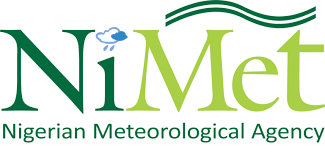Nigerian Meteorological Agency (NiMet) has sought more modernised hydrometeorological infrastructure to enhance early warning and a solid step towards reducing the early warning gaps.
It added that the unprecedented weather extremes in past few years was due to lack of access to latest technologies, uncoordinated dissemination efforts, insecurity and maintainability of early warning systems must be proactively addressed.
The Director General, NiMet, Prof. Charles Anosike, gave the hint on Monday in Abuja during the 2025 World Meteorological Day with the theme: “Closing the Early Warning Gap Together”.
He added that the agency has continued to work towards upgrading its weather systems, providing quality observation and robust weather forecasts to trigger pre-emptive measures and equip stakeholders with the necessary tools to interpret early warnings and respond with early actions.
Anosike noted that the annual event provides a unique opportunity to reflect on the role of meteorology in building a climate-resilient society and safeguarding lives and livelihoods.
Anosike stated: “Investing in early warning systems not only saves countless lives and livelihood, it generates ten times return on investment and strengthen economies.
“Of course, we are excited by the progress made in expanding early warning systems coverage worldwide as we continued to experience increasing climate variability and extreme weather events.”
To support this global endeavour, Anosike posited that the agency has been engaged in strengthening forecasting and dissemination capabilities to ensure communities and individuals prepare for, respond to, and mitigate the impacts of extreme weather.
Anosike stressed that NiMet remained at the forefront of advancing early warning systems through science-based weather and climate services.
He said: “Our Seasonal Climate Prediction (SCP), daily weather forecast and bulletins, Impact-Based forecast and other publications have proven instrumental in disaster risk reduction across all socio-economic sectors.
“We must recognise that closing the early warning gap requires all, including strong collaboration, coordination and cooperation between national and international partners, policymakers, the private sector, and local communities especially the youth. Government alone cannot do it.”

